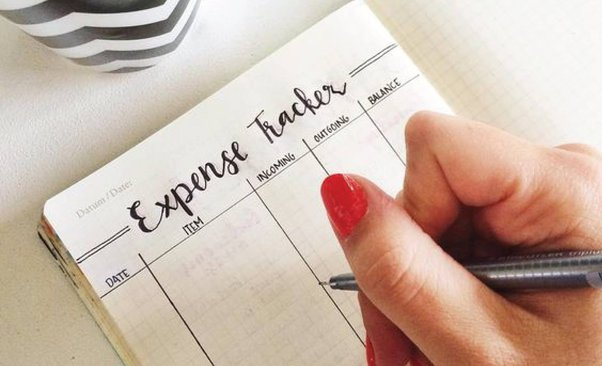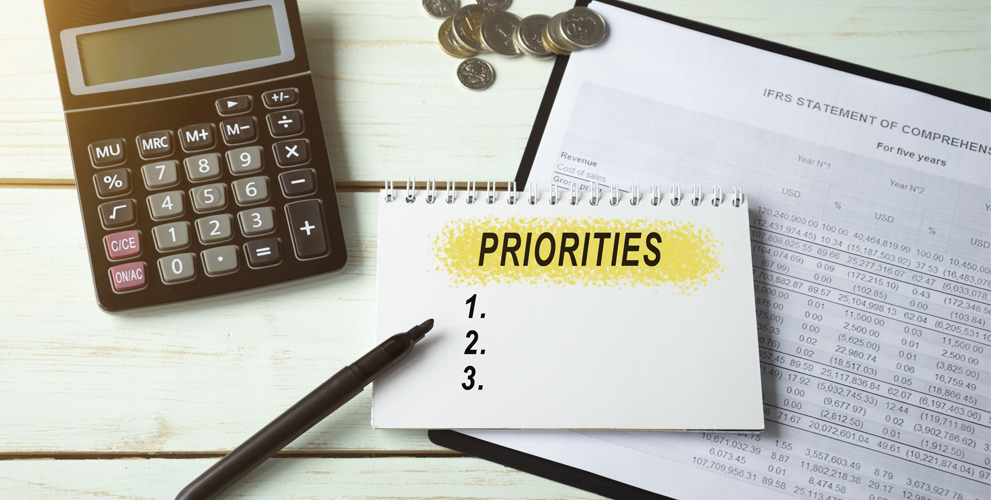How Can I Save More Money
Saving money is a financial goal many of us share. We might already have some savings habits, but the desire to save more, including for single people and single moms, is a common aspiration. In this quest for financial security and to explore additional ways how to save money, the question arises: How can I save more money? It’s a natural progression for those who have mastered saving to seek new strategies and opportunities to increase their savings. This journey often begins with a simple premise: exploring additional avenues to reduce spending and learning how to save money as a single person or how to save money as a single mom. We aim to provide you with actionable steps to bolster your financial well-being and help you secure a brighter financial future. So, read on to uncover the keys to achieving your savings goals. Let’s delve into this quest for greater savings and discover practical ways to achieve our financial objectives.
Record Your Expenses
Recording your expenses is a fundamental step in taking control of your financial situation and working towards your financial goals. It involves systematically documenting all your expenditures to gain insights into your spending patterns, identify areas where you can cut costs, and ensure that your money is used wisely. This process can be broken down into several key aspects:
Understanding how much you spend regularly is the cornerstone of effective expense tracking. It involves a detailed record of every financial transaction, whether a significant monthly bill or a minor daily purchase. By meticulously noting these expenses, you create a clear picture of your spending habits, which is essential for budgeting and financial planning.
One of the primary benefits of recording your expenses is the ability to spot areas of wasteful spending. Often, we make small, routine purchases without realizing how they add up over time. By reviewing your expenditure records, you can identify unnecessary or frivolous expenses that can be eliminated or reduced. This frees money for more meaningful purposes and helps you develop smarter spending habits.
Expense tracking is an ongoing process that requires discipline and consistency. It’s about recording expenses and categorizing them to gain deeper insights. Separating your spending into different categories, such as essentials (needs) and nonessentials (wants), can reveal patterns and highlight areas where adjustments can be made. This data becomes the basis for creating a budget that aligns with your financial priorities and goals.
In summary, recording your expenses is the foundation of sound financial management. It empowers you to make informed decisions about your money, eliminate waste, and pave the way for a more secure financial future. When done diligently, this practice can be a transformative step towards achieving your financial aspirations.
Include Saving In Your Budget
Incorporating savings into your budget is a vital financial practice that can significantly impact your long-term financial security. Saving is not just about what you do with what’s left after your expenses; it’s a deliberate and planned allocation of a portion of your income toward your financial goals. Here’s a closer look at the components of this essential budgeting step:
Create a budget related to your income – Effective financial planning begins with setting up a budget that aligns with your income. This requires Assessing your overall revenue, including your wage, freelancing pay, or any other money. You can allot specific sums to different categories, including savings if you have a firm grasp of your cash input. By doing this, you can be confident that you’re not only paying your bills but also saving money for your goals and needs in the future.
Plan your spending and limit your overspending – budgeting involves managing your expenditure sensibly and allocating money for savings. You may decide where your money is spent on purpose by dividing your spending into requirements and wants. Limiting unnecessary expenditures can divert that cash toward your savings objectives. Budgeting discipline encourages improved money management practices and helps you save.
Save a comfortable amount – the amount you save should be both meaningful and comfortable, considering your income and financial goals. It’s essential to balance saving enough to progress toward your objectives and ensuring that you have sufficient funds for your current needs. Saving a comfortable amount ensures that you don’t feel financially strained, which can lead to budgeting burnout. It’s about finding the right equilibrium between living today and preparing for tomorrow.
Find ways to cut spending
It’s crucial to actively look for ways to cut your spending to keep your budget in good shape. Start by paying close attention to your discretionary spending. This comprises identifying goods or services that aren’t necessary and looking for ways to reduce their cost or find more affordable substitutes. Keep an eye out for discounts and special deals, such as coupons or online promo codes, which can lead to significant savings on your regular purchases.
Moreover, optimizing your monthly expenses is a prudent move. Take the time to review bills related to utilities, insurance, and subscriptions. Frequently, there’s room for improvement in these areas. You can negotiate better deals with your current providers or discover more budget-friendly alternatives elsewhere. This expense reduction process empowers you to free up more financial resources that can be channeled toward your savings goals, ultimately strengthening your financial security and stability.
Set Your Saving Goals
Setting well-defined saving goals is an integral part of effective financial management. Here’s how to go about it:
Estimate how much money you’ll need and how long it might take you to save it-
Start by outlining your savings goals in detail. Calculate the precise amount of money you require, whether for an emergency fund, a down payment on a home, or a dream vacation. Make a fair timetable for attaining your goal as well. This phase gives you a specific goal and helps you develop a practical savings strategy.
Review your budget and check your progress every month – your budget is a valuable tool for monitoring your advancement toward your financial objectives. To make sure you’re on track, examine your budget frequently. Adjust as necessary to bring your income and expenses to your savings goals. Regular monitoring lets you find areas where you can save money.
Think about what you want to save for and why – consider the nature of your saving goals. Are they short-term or long-term? Are you saving for a specific purchase or your future financial security? Understanding your goals’ “what” and “why” provides motivation and clarity. It reinforces your commitment to saving and helps you focus on your financial priorities.
Understand why saving is important – recognize the importance of saving as a fundamental aspect of financial well-being. Saving provides a safety net for unexpected expenses and enables you to work towards your aspirations. It grants you financial freedom, peace of mind, and the ability to secure your future. Understanding these benefits reinforces your dedication to saving.
People don’t just do anything without a why – the principle of “why” is a powerful motivator. People are more likely to take action and persevere when a compelling reason drives them to save; defining your “why” can drive consistent and purposeful financial planning. It transforms saving from a mere task into a meaningful journey towards achieving your financial dreams.
Review Recurring Charges
When managing your finances wisely, it’s crucial to differentiate between needs and wants. Consider the following:
1. Cellphone Plan
Assess whether your current cellphone plan aligns with your genuine needs or includes unnecessary features or data you rarely use. You might discover opportunities to trim your plan, potentially saving money without sacrificing essential communication.
2. Internet Plan
Similarly, review your internet plan to determine if it meets your requirements. If you’re paying for higher speeds or data capacity than you use, consider downsizing to a more cost-effective plan that still fulfills your online needs.
3. Gym Membership
Evaluate the necessity of your gym membership. When was the last time you actively utilized it? If your gym visits have become infrequent, you might be spending money on a service you can replace with alternative exercise routines or outdoor activities. Consider whether your fitness regimen aligns with your goals and if a gym membership remains a justified expense.
Remember, making these assessments can lead to significant savings and a more streamlined budget, allowing you to allocate resources to your true priorities.
Examine The Cost Of Eating Out Versus Cooking At Home
Managing your finances effectively and assessing the cost of dining out compared to cooking at home is crucial. Home-cooked meals generally come at a significantly lower cost than restaurant dining, providing you with greater control over ingredients and portion sizes. Additionally, packing your lunch for school or work offers a budget-friendly alternative, allowing you to select nutritious options and avoid the expense of eating out during lunch breaks. By making these comparisons, you can make informed choices that align with your financial goals, potentially freeing up resources for other financial priorities.
Wait Before You Buy
When striving to save money, it’s essential to exercise patience, particularly with nonessential purchases. One valuable strategy is the “30-day rule.” Before buying unnecessary items, wait for 30 days. This delay lets you consider whether the purchase is worthwhile and aligns with your financial goals. It’s astonishing how many things lose their allure after this waiting period. Incorporating this practice into your spending habits allows you to make more deliberate and financially responsible choices, ultimately contributing to your savings goals.
Determine Your Financial Priorities
Make the most of your savings; it’s crucial to determine your financial priorities. Consider where your savings should be allocated based on your immediate and long-term needs. Are you saving to replace your car, fix your roof, or upgrade your water heater? Or is your primary focus on building a robust retirement fund? Allocating your savings to match these priorities ensures that your financial resources are directed toward your most pressing needs and objectives, allowing you to maintain financial stability and work toward your long-term financial security.
Pick The Right Tools
Selecting suitable financial instruments is a crucial aspect of efficient financial management. Spreadsheet software or specialized smartphone apps could be helpful allies in your quest for financial management. Spreadsheets like Microsoft Excel or Google Sheets, which offer a high degree of flexibility, can create exact budgets, track expenses, and monitor your financial success over time. On the other hand, a wide range of smartphone apps connected to money management are easily accessible and can facilitate several chores. Goal-setting, bill-reminder, and spending-tracking capabilities are commonly included in these applications, making it easier to stay organized and make responsible financial decisions.
Furthermore, it’s crucial to tailor your choice of financial tools to your unique financial priorities. Suppose you’re aiming to save for your children’s education. In that case, you’ll want tools that facilitate long-term planning, helping you estimate future education costs and create a savings strategy to meet those goals. Similarly, if retirement planning is a priority, opt for tools that enable you to project your retirement needs and set up investment accounts or retirement funds. The right tools can simplify your financial management and empower you to make choices that align with your financial aspirations and objectives.
Make Saving Automatic
Automating your savings is a very effective way to ensure that you keep putting money aside for your financial objectives. Many financial organizations offer valuable services that enable you to automate saving. By connecting your checking and savings accounts, you can set up automated transfers that move a specified amount of money from your checking account to your savings account regularly, such as once per month or with each paycheck.
Most banks provide this service free of charge, making it an accessible option for anyone looking to build a savings habit. The beauty of automation lies in its simplicity and consistency. Once set up, you don’t have to remember to save manually; it happens automatically, gradually helping you accumulate the funds you need to achieve your financial goals. Whether saving for emergencies, a vacation, or retirement, automating your savings can be a powerful tool to turn your financial aspirations into reality.
Watch Your Savings Grow
A crucial step in your financial path is observing your money’s growth. Regularly reviewing your budget and savings plan ensures you’re on track and moving toward your goals. You may then evaluate your financial success, pinpoint areas for development, and make the required corrections to keep on track.
Monthly budget reviews are pivotal in answering the question, “How can I save more money?” These reviews allow you to track your income and expenses, ensuring you stick to your savings goals and maintain a sound financial strategy. Beyond that, they provide an opportunity to spot any changes in your financial situation and address them promptly. Additionally, periodically reviewing your budget can help you find more ways to save, accelerating your progress toward your financial objectives. This proactive approach ensures that you save consistently and optimize your savings strategy to reach your goals faster.
Grow Your Savings
Growing your savings is a critical step toward achieving your financial goals. To accelerate your savings, consider these strategies:
1. Getting Out of Debt: Prioritize paying off high-interest debts. Being debt-free frees up more money to save and invest in your future.
2. Consider Budgeting: To manage your funds efficiently, experiment with various budgeting strategies, such as the 50/30/20 rule or zero-based budgeting. You can dedicate more money to savings with a well-structured budget.
3. Open a separate savings account designated for your financial objectives. This division can help you keep track of your progress and stop you from using your funds for optional things.
By implementing these strategies, you can supercharge your savings and work towards achieving your financial aspirations more rapidly.
Determine Your Financial Priorities
Prioritizing your financial goals is a crucial step in managing your savings effectively. Here’s how you can determine your financial priorities and allocate your savings accordingly:
Identify Your Financial Goals: List all your financial objectives, whether short-term or long-term. These may include building an emergency fund, saving for retirement, buying a home, or funding your child’s education.
Evaluate Your Goals: Assess the importance and urgency of each goal. Consider factors like the timeline for achieving them and their impact on your financial well-being.
Rank Your Goals: Prioritize your goals based on their significance to you. Some goals, like saving for retirement or creating an emergency fund, may take precedence over others due to their long-term benefits.
Allocate Your Savings: Once you’ve ranked your goals, allocate your savings accordingly. Dedicate a portion of your income to each goal, focusing on funding your top priorities first.
Regularly Review and Adjust: Review your financial goals and adjust your savings allocation as needed. Life circumstances can change, and your priorities may shift over time.
By following this process, you can ensure that your savings efforts align with your most important financial objectives, helping you make steady progress toward achieving them.
Emergency Fund
In the event of unforeseeable situations like job loss or natural disasters. This money is a crucial safety net, keeping you from experiencing financial instability when things go tough. It’s critical to stress that this money should only be used for actual emergencies, such as medical costs or urgent repairs, and not for discretionary spending. Your financial stability and overall peace of mind will be significantly enhanced by steadily building your emergency fund and keeping its integrity.
Spend Extra Or Unexpected Income Wisely
Effectively managing extra or unexpected income, such as bonuses or tax returns, is a smart financial strategy when seeking ways to save money. Rather than impulsively spending windfalls on nonessential items, consider using these funds to bolster your financial security. A portion can be allocated to your emergency savings, fortifying your financial safety net for unexpected expenses. The remainder can be directed toward your long and short-term financial goals, helping you achieve them more rapidly. This approach ensures that unexpected income is leveraged to enhance your overall financial well-being, addressing the question, “How can I save more money?” rather than being frittered away on fleeting purchases.
Try A Spending Freeze
A spending freeze can be an effective way to curb unnecessary expenses and boost your savings temporarily. During this period, the goal is to refrain from purchasing nonessential items. This includes avoiding impulse buys like junk food, walking instead of driving for short trips, and being diligent about turning off lights and air-conditioning when not needed. While embracing contentment with your current possessions, it’s important to note that this doesn’t equate to complacency; instead, it encourages thoughtful consideration of your spending habits. Use the spending freeze as an opportunity to save as much as possible, redirecting those funds toward your financial goals. This temporary financial discipline can positively impact your overall savings and financial well-being.
Buy Generic
Opting for generic or store-brand products can significantly reduce your expenses and contribute to saving money. When shopping, consider purchasing less expensive alternatives to brand-name items without sacrificing quality. The library can also be a valuable resource beyond books. You can borrow various forms of media, including movies, magazines, and music, saving money on entertainment expenses. Some libraries even offer art lending programs, allowing you to enjoy artwork without the cost of ownership.
Additionally, you can explore the library for office equipment like printers and computers, which can be borrowed for short-term needs, helping you cut costs on expensive office supplies. These frugal choices align with your goal of efficient spending and smart saving.
Count Your Coin And Bills
Counting and saving your coins and bills can be a surprisingly effective way to boost your savings over time. You’ll gradually accumulate a significant sum by setting aside small daily amounts. To make this strategy work, bring only what you need when you go out and resist spending on unnecessary items. This practice can also extend to your grocery budget – focus on essentials and reduce impulse purchases. You can significantly impact your savings by being mindful of your spending and making small changes.
Establish Your Budget
The first step in successfully managing your finances is to create a budget. It acts as a spending cap that aids in maintaining your means. By creating and sticking to a clear budget, you may avoid overspending, ensuring that your income covers your expenses while leaving room for savings and financial objectives. Your budget is a financial road map, pointing you toward a more stable and sustainable financial future.
Restrict Online Shopping
Restricting online shopping can be a smart financial move. One way to achieve this is by avoiding the temptation of online shopping apps. When you need to install these apps, you make it less convenient to make impulse purchases, helping you stick to your budget and financial goals more effectively. This simple step can help you reduce unnecessary spending and allocate your money toward more meaningful priorities, ultimately contributing to your financial well-being.
Reduces Your Electric Bill
Reducing your electric bill is a great way to save money. One effective strategy is to switch off anything that you’re not using. This includes lights, appliances, and electronics. By being mindful of your energy consumption and turning off devices when not in use, you can lower your electricity expenses and keep more money in your pocket. A slight behavior change can lead to significant savings over time.
Pay Off High-Interest Loans
Paying off high-interest loans is a smart financial move that can increase your disposable income. High-interest loans like credit card debt can drain your finances with hefty interest payments. By prioritizing the repayment of these loans, you reduce the interest you owe and free up more money in your monthly budget. This increased disposable income can be redirected towards savings, investments, or other financial goals, helping you build a more secure financial future.
Lower Your Student’s Loan Payment
Lowering your student loan payments can provide relief and financial flexibility. Consider strategies such as paying off your student loans more quickly to achieve this. Accelerating your loan repayment can help you reduce the total interest paid and free up funds in your budget. You can accomplish this through making extra payments or exploring loan consolidation options that offer better terms. By taking control of your student loans, you can work towards lowering your monthly payments, which can significantly impact your overall financial well-being.
Map Out Major Purchases
Mapping out major purchases is a prudent approach to smart spending. To execute this effectively, consider several valuable tactics:
- Be patient and wait for promotions or sales events that can lead to significant savings on your desired items.
- Track the prices of these items over time, which will empower you with knowledge about the best times to make a purchase.
- Feel free to ask for discounts or negotiate prices, as many retailers are willing to provide concessions to secure your business.
- Apply the 30-day rule: Wait 30 days before buying nonessential items to ensure that your desire to purchase remains strong, helping you avoid impulse spending and make more deliberate financial decisions.
Prep For Grocery Shopping
A smart method to better manage your home spending is to prepare for supermarket shopping. Start by making a list of the things you need to buy. This will keep you focused and lower the likelihood of buying extraneous products. Adhere to the idea of only making purchases from your shopping list and refrain from making impulsive purchases. Utilize coupons and promos to their full potential to optimize your savings during the shopping trip. By following these tips, you may streamline your grocery shopping process and have more control over your food spending.
Reduces Your Gas Usage
Reducing your gas usage is not only good for your wallet but also for the environment. Consider alternative modes of transportation to lower your reliance on gas. Choose to walk or bike for shorter trips, saving money on gas and promoting physical fitness. Using public transportation like buses can be a cost-effective and eco-friendly option for longer distances. These choices reduce your fuel expenses and contribute to a greener, more sustainable lifestyle.
Enjoy Community Events
Taking advantage of community events is an excellent way to have fun and socialize without breaking the bank. Many schools organize gatherings and activities that are not only enjoyable but also budget-friendly. Watch for free or low-cost events organized by your local park district. These events offer entertainment and opportunities to engage with your community without straining your finances. It’s a win-win situation, allowing you to save money while enjoying the company of friends and neighbors.
Conclusion
In conclusion, the quest to save more money is rooted in financial wisdom and prudence. It’s a journey that begins with recording your expenses, examining your spending habits, and setting clear savings goals. Through diligent budgeting and prioritizing, you can allocate your resources to what truly matters, ensuring that every dollar is put to its best use. As you watch your savings grow, remember that emergencies can happen, and having an emergency fund is crucial for financial security. You can bolster your savings even further by making wise choices, avoiding unnecessary expenses, and embracing a spending freeze when needed.
The importance of saving more goes beyond just accumulating wealth; it’s about achieving financial freedom, peace of mind, and the ability to pursue your dreams and goals. It provides a safety net during unforeseen circumstances and allows you to plan for a secure future. So, when you wonder, “How can I save more money?” remember that the journey begins with a single step, and each small saving today paves the way for a brighter financial tomorrow.
Track Your Spending
Tracking your spending is a fundamental step in effective financial management. By monitoring and recording your expenses, you gain valuable insights into where your money is going. This process allows you to identify areas where you can cut back or find more cost-effective alternatives. Additionally, tracking your spending helps you stick to your budget and savings goals, ensuring that you are making progress toward financial security. Whether you use spreadsheets, budgeting apps, or old-fashioned pen and paper, tracking your spending is a crucial habit for anyone looking to improve their financial situation.






